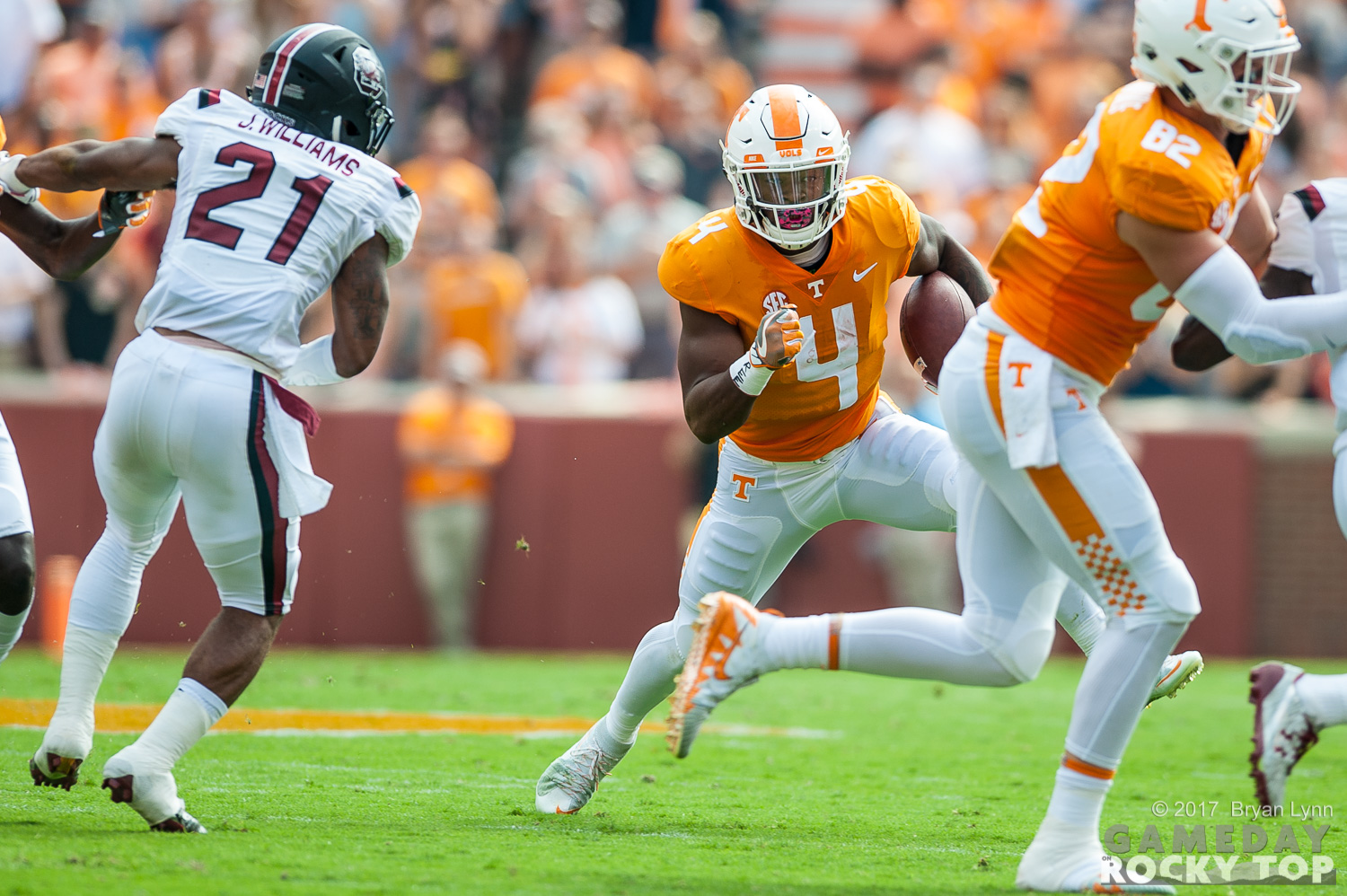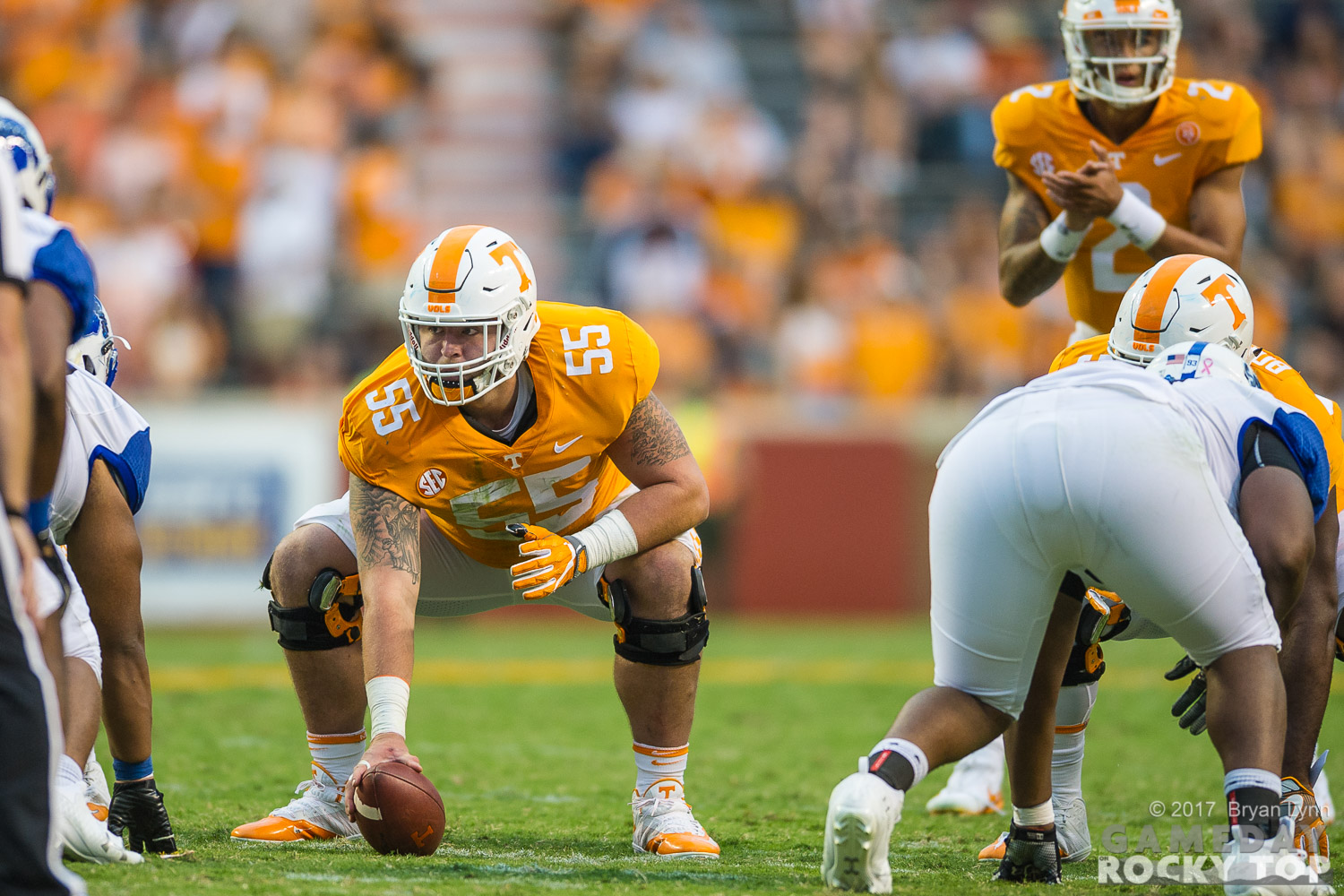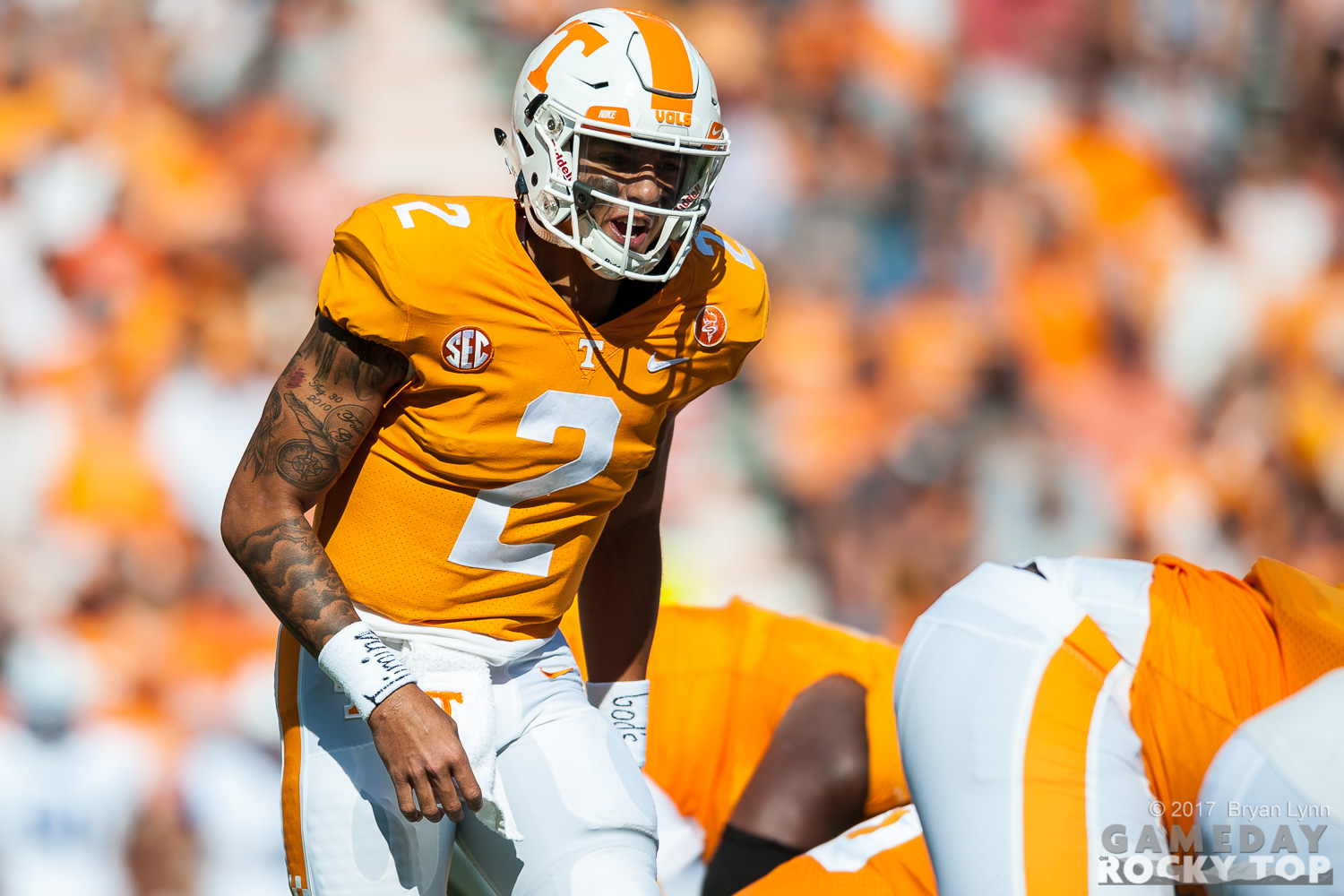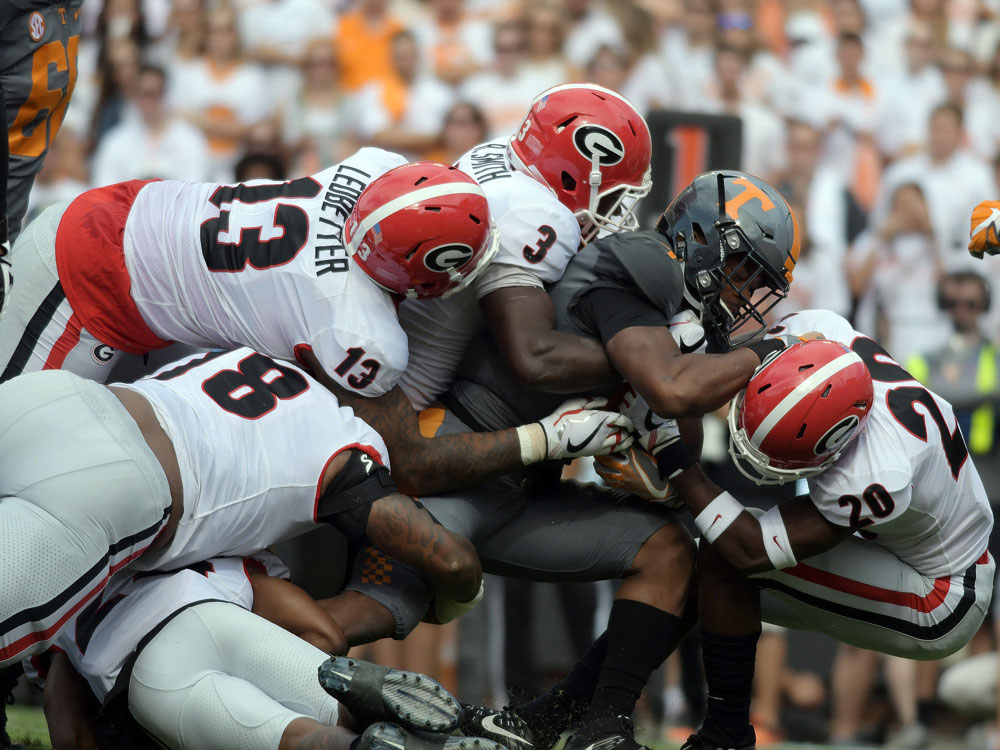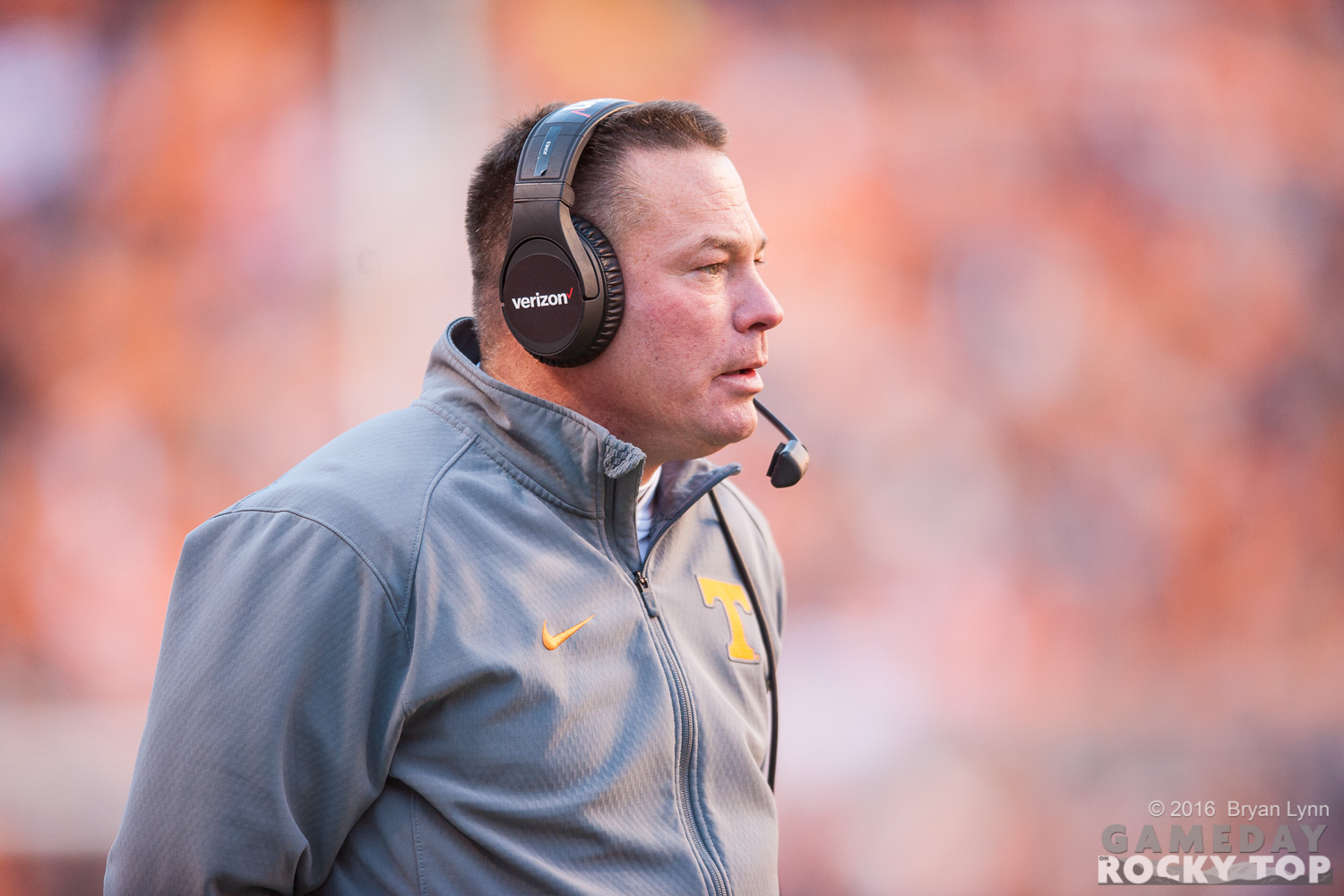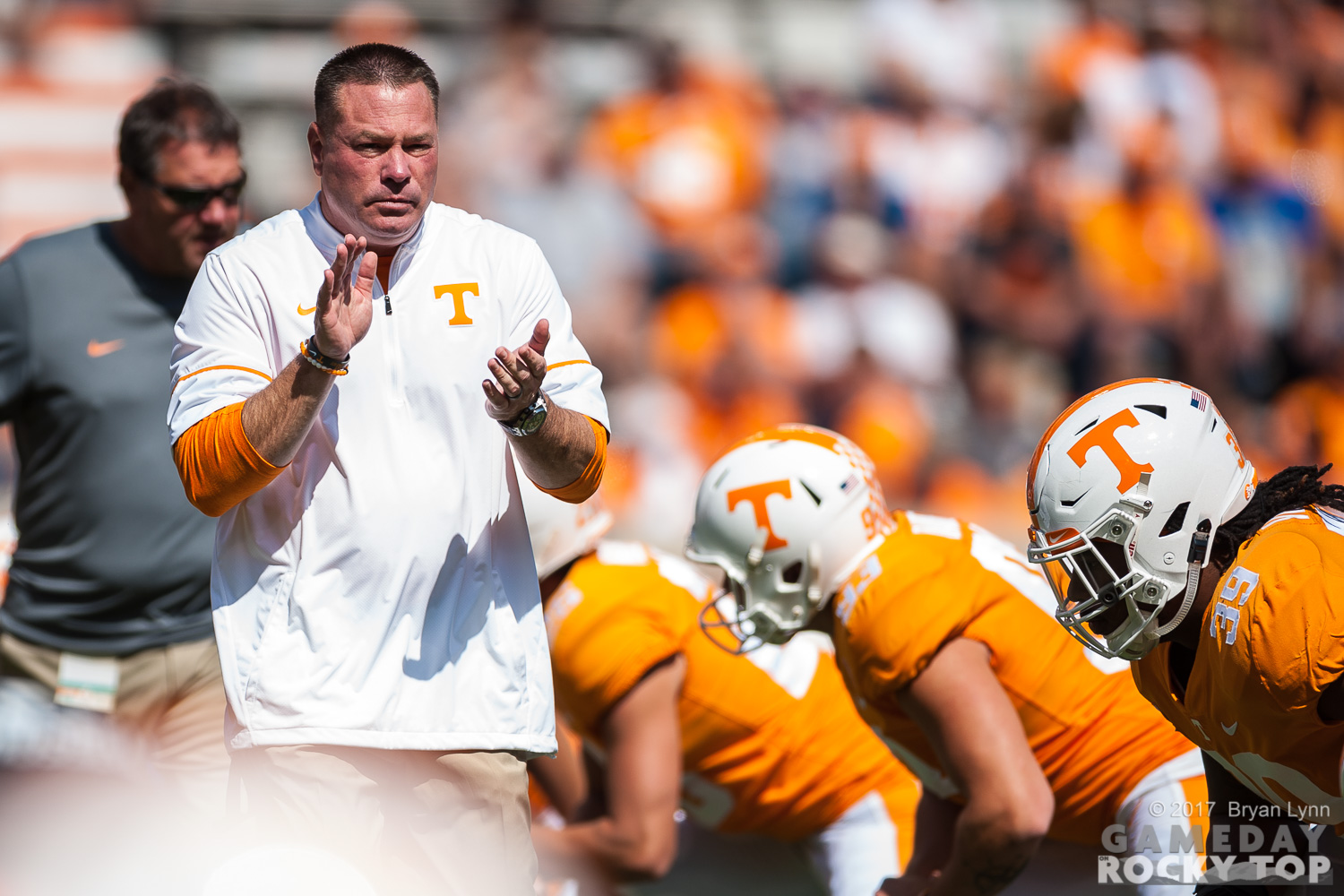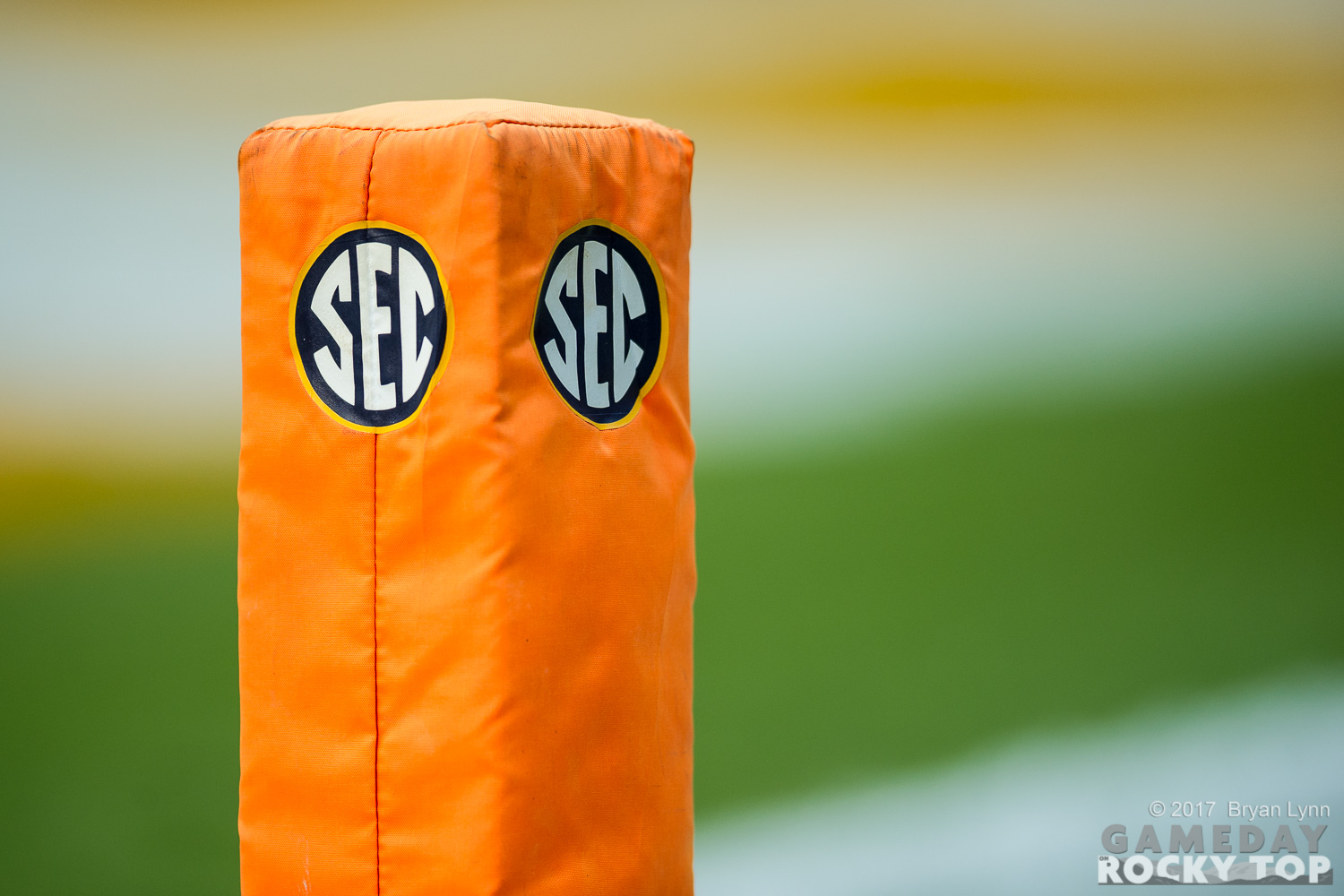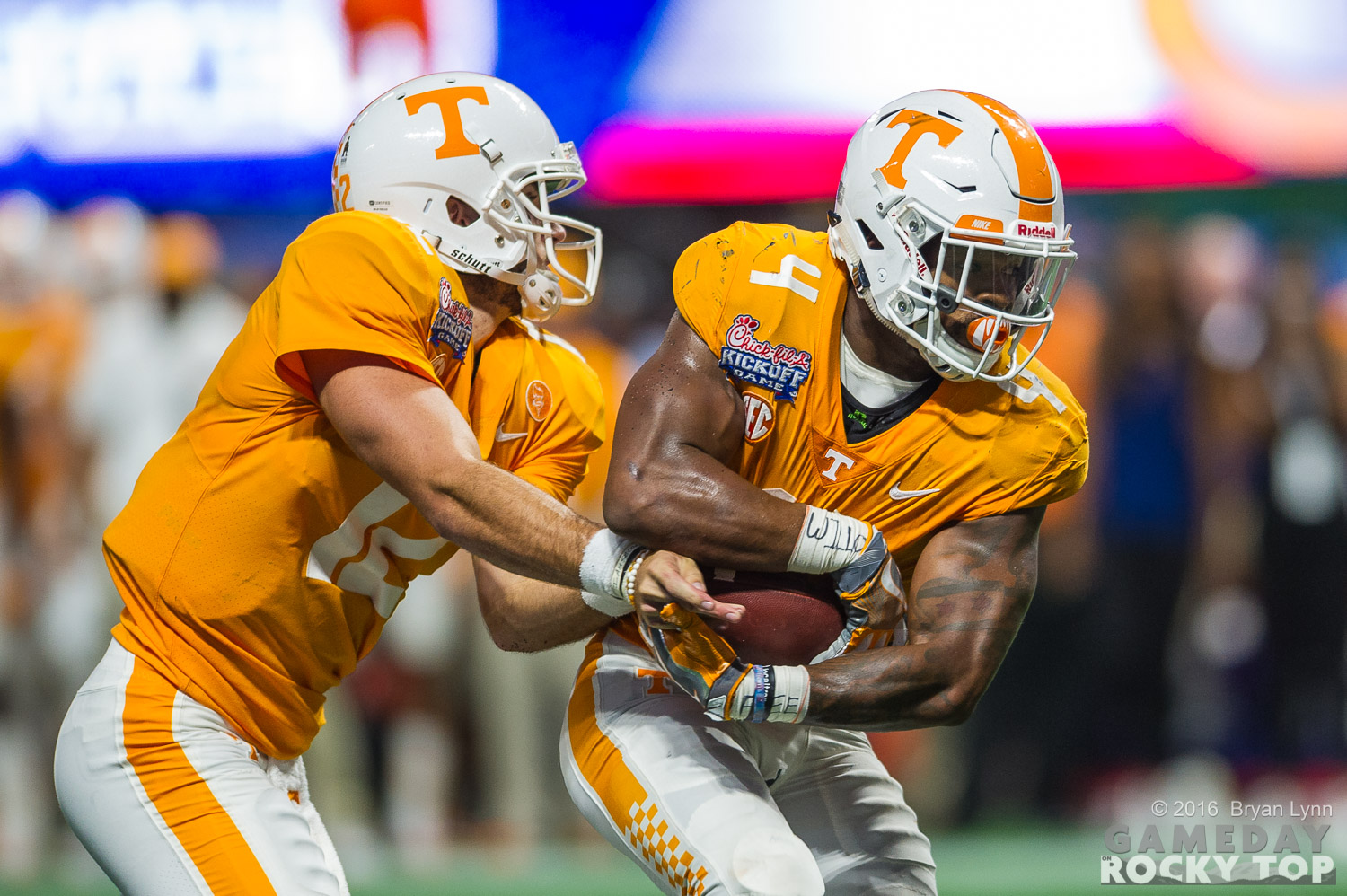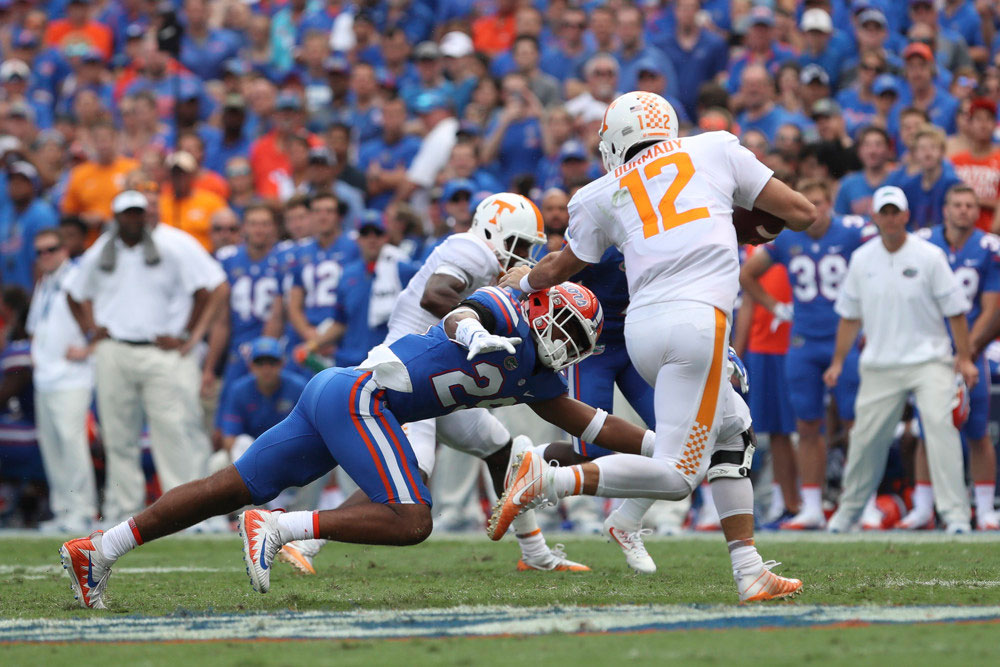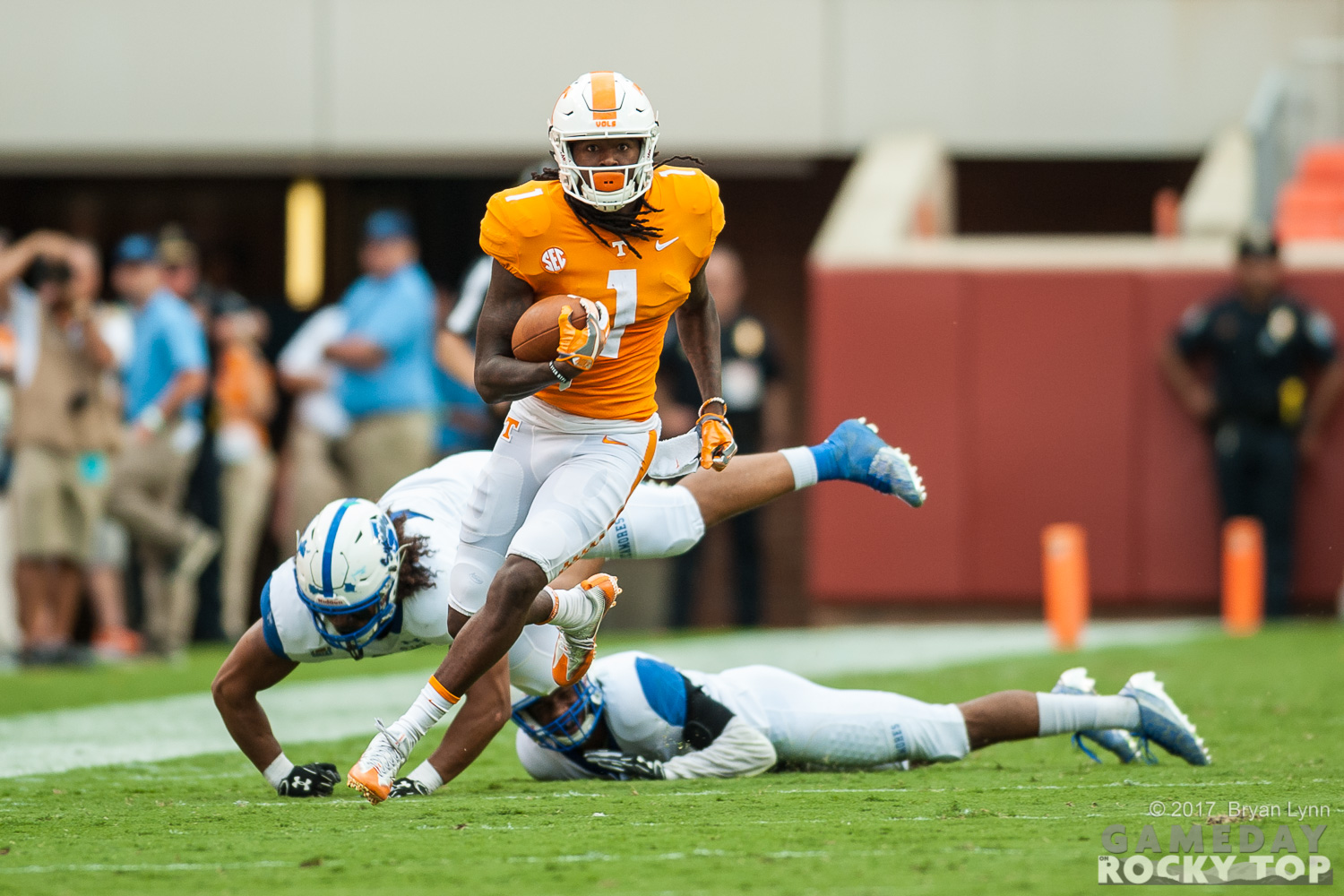Unless the Vols pull off the miraculous in Tuscaloosa on Saturday, the 2017 season will become about the 2018 season. With the SEC East out of range and the on-paper progress of a 9-3 season likely to fall at Alabama, the meaningful goals for Team 121 will be lost before November. But if there is good news in the midst of such strife, it’s that Team 122 will be mostly comprised of meaningful players from Team 121. You never know what will happen with transfers in an unstable coaching situation, but most of this team will have the opportunity to be back next season.
And that means it’s in Tennessee’s best interests for Team 121 to figure itself out before it becomes Team 122, regardless of who the coach is.
Maybe it’ll be Butch Jones. Maybe it won’t. But from a fan perspective, there is no need to be conflicted about what to root for on Saturdays. Tennessee needs to get better now so it can be better next year when those goals are fresh on the table. And that obviously starts with the offense.
How will the quarterbacks be managed the rest of the season?
The Vols have commitments from four-star Adrian Martinez and three-star Michael Penix, but it seems most likely that either Jarrett Guarantano or Quinten Dormady is the starting quarterback in 2018. That will depend, to some degree, on how one or both of them are managed the rest of this fall.
Will the coaching staff (however it looks) ride Guarantano the rest of the way from here, or does Dormady get another look if/when Guarantano really struggles? All the first half observations were a little sunnier than the second yesterday, but I thought this was a good one:
JG reminds me of freshman year Dobbs. Has no idea what to do after the primary route breaks down, but has the presence to get something.
— Brian Rice (@briancrice) October 14, 2017
The raw numbers for Guarantano were fine – 11-of-18 for 133 yards – with the fact that he threw no interceptions almost negated by taking seven sacks. Some of that is an offensive line which does feature three of this team’s seniors, plus a fourth in tight end Ethan Wolf. They are the offensive position group that will look most different next year. But if the rest of the offense is going to grow for the future, they’ll need better play from Brett Kendrick, Jashon Robertson, Coleman Thomas, and the rest right now.
For the quarterback’s part of the blame for seven sacks, he’ll learn…and that’s the best thing about Guarantano right now. He has the opportunity to get better, Alabama notwithstanding, against defenses that will be more forgiving down the stretch. Right now Kentucky (73rd in yards per play allowed), Vanderbilt (94th), and Missouri (121st) should all give Guarantano and the Vol offense a chance to look better than they have recently.
Growth can be slow for a young quarterback, but still present. Josh Dobbs completed 59.5% of his passes with a -4 TD/INT ratio in 2013. In 2014 he was up to 63.3% and +3. Guarantano doesn’t have to look like 2016 Dobbs just yet. He just needs to get better.
Has the offense really been bad all year?
Remember the first two weeks of the season when we were all just worried about where the defensive linemen were positioned at the snap? There were and are a plethora of bad memories from Florida on both sides of the ball, but statistically speaking? The Vols had at least a decent offense through three weeks.
Consider this: the Vols averaged 6.25 yards per play against Georgia Tech; the Yellow Jackets are two points away from 5-0 and only Miami (6.5) has had a better day against their defense. And which offense has had the most productive day against the Gator defense? It’s us: so far Tennessee is the only team to average more than six yards per play (6.14) against Florida.
Through three games, Tennessee was averaging 6.09 yards per play. That’s better than the 2016 offense was doing through the first five games last year (5.47), until it met Texas A&M and business started to pick up.
No one was praising the offense because regardless of its per-play efficiency, the mistakes it made in the red zone at Florida were catastrophic. This too was new: going into Gainesville one of the things I was most confident in was how successful the Vols had been not just inside the 20, but inside the 40 against Georgia Tech and Indiana State, where every drive but one had ended in a touchdown.
But since Florida, the overall production has been drastically different. The red zone failures are familiar, but the overall struggle is newer. Perhaps what happened against the Gators rattled Dormady or Larry Scott or who knows who else. Perhaps it was simply more of Tennessee’s identity getting put on film and the offense failing to adjust. Or perhaps a mismanagement of the quarterback situation from the beginning of the season has manifested itself the last three weeks. Regardless, it’s hard for me to believe this offense is hopeless with either quarterback, because there were in fact hopeful signs in the first three weeks. The sooner the Vols rediscover that hope, the better 2018 can be. An offense that returns John Kelly, Marquez Callaway, and (hopefully) Jauan Jennings has a lot to be excited about if we can add in more of an answer than a question at quarterback.
What about the defense?
On the other side of the ball, the seniors on this team we thought the Vols would count on most have largely been removed from the equation. Todd Kelly Jr., Cortez McDowell, and Evan Berry have all been lost to injury. Shaq Wiggins has struggled to see the field. The Vols will have holes to fill at corner with Justin Martin and Emmanuel Moseley both leaving, but at this point the only other seniors in the regular defensive rotation are Colton Jumper and Kendal Vickers. This team will have a chance to return a ton of talent and experience in the front seven, plus both safeties and Rashaan Gaulden.
Same as this year, there will be plenty of recruiting stars on the roster in 2018, and same as this year, that will be no guarantee of success. But though it may feel like Tennessee has little left to play for this year and the conversation about Team 121 is getting dwarfed by coaching curiosity, so much of this team is coming back that the second half of this season will have a direct impact on the next one. Getting clarity on the coaching situation is of great importance to Tennessee’s success next year. But so is getting the team that will largely return next year to play better football now so they can achieve their goals next time.
